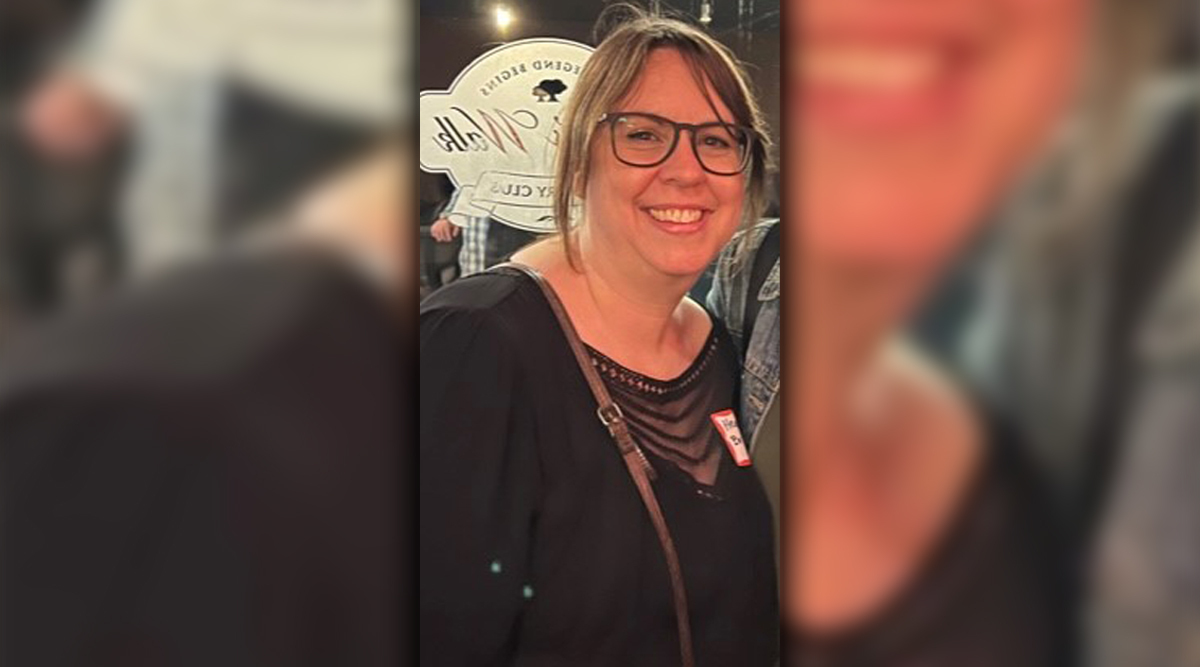She doesn’t perform life-saving surgeries, but Ruth Ann “Ruthie” Duncan has been a lifesaver for many.
By TJ Banes, IU Health Senior Journalist, tfender1@iuhealth.org
Her co-workers say Ruthie Duncan connects well with patients. She often is one of the first faces they see when they come into the transplant area of IU Health University Hospital.
At age 72, Duncan says she just “loves helping people.” That may mean offering directions to a specific office or waiting room, or navigating them through their daily lives.
A long-time Eastside resident, Duncan graduated from Howe High School. She is the mother of two adult children and grandmother of two granddaughters.
“I’ve been a mom to so many of my kids’ friends. Even today they’ll come up and hug and kiss me. It makes me feel so good,” said Duncan. When her granddaughters were younger, their friends came to her home swimming and she often heard her summoned as, “Mom” or “Nana.”
So it came as little surprise to many of her coworkers when Duncan came to IU Health three years ago and formed a special friendship with a transplant patient and volunteer.
More than 30 years ago, Daniel Moore, 31, came to Riley Hospital at a year old to receive his mother’s kidney. He was one of the youngest patients to receive a transplant. He overcame various health challenges and graduated from the Indiana School for the Blind and Visually Impaired. For several years, Moore has navigated the hospital halls with the assistance of a mobility cane, serving as a dedicated volunteer.
Shortly after Duncan joined IU Health, Moore walked into her office and introduced himself. He continued volunteering in the transplant department and, overtime, the two formed a special friendship.
“He’s really attached to the transplant department,” said Duncan. Even though Moore has moved to different areas of the hospital, he still checks in with Duncan every morning he volunteers, promptly at 7:30 a.m., during his lunch break and as his shift ends at 4 p.m.
“He’s so intelligent and often uses big words so I’ll just say, ‘Daniel, tell me what that means,” said Duncan. Once when someone asked Moore how he finds his way around the hospital he said: “I’ve overcome a lot of obstacles to get where I am. Finding my way around the hospitals was the easy part. I even know the tunnels.”
After spending so many hours volunteering, Moore said, “I don’t take this job lightly. It’s the closest thing to a real job I’ll ever have and it’s taken me a long time to build trust with everyone.”

The more Duncan got to know her new friend, the more she learned about his interests and even his “bucket list.” Duncan met him two years before he turned 30 and Moore told her he wanted to celebrate his milestone birthday by renting a limousine and inviting a bunch of friends to dinner. With Duncan’s help, that party happened and among the guests were IU Health’s Dr. Asif Sharfuddin, who specializes in nephrology; Trysha Miller, transplant social worker and Mary Taber, transplant nurse coordinator. They gifted Moore with a cake, balloons, and an IU Health jacket embroidered with his name.
Also on Moore’s “bucket list” was attending the Indianapolis 500. He has fond memories of watching the race with his late grandfather.
Through a friend, Duncan was able to secure race tickets. Moore was given VIP treatment with golf cart transportation and a tour of the pits. During the holidays, when Moore mentioned that he’d like tour the downtown lights, Duncan again helped him fulfill a wish by taking him through the Indiana State Fairground’s light display.
“I just love my job and the opportunities I’ve been given,” said Duncan. In her spare time she enjoys spending time with her dogs and cats, and getting “wind therapy” on the back of a Harley-Davidson Motorcycle any chance she gets. She also enjoys sewing and stitched a homemade green flannel blanket for Moore when he moved into his apartment. Green is Moore’s favorite color and also the color symbolizing hope through transplant.
How does Moore feel about his friend?
He tells others: “She’s my best friend at the hospital.”

